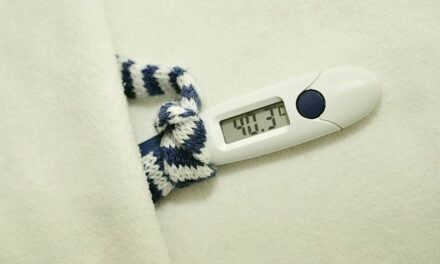Sinus infections, as you can tell by the name, are an infection that begins in your sinuses. This can cause many different symptoms and issues, as expected by an infection. These types of infection can cause pain in the sinuses or face in general, but did you know that infections can sometimes cause anxiety, depression, and other mental issues or emotional issues? It’s true for many different types of infections, including sinus infections. But, you may ask Can a Sinus Infection Cause Anxiety?
For the most part, it’s specifically people with a chronic sinus infection that typically experience some form of depression or anxiety, but it doesn’t have to be a chronic infection for you to experience those things, even if it’s more likely.
Today, we’ll be discussing this more in-depth, and finding out exactly how depression and anxiety can sometimes be linked to sinus infections.
So let’s get started.
What are Sinus Infections?
First of all, you may be asking yourself what a sinus infection is. If you don’t know, here what it is.
A sinus infection is an infection in your sinuses. This occurs when the sinus area becomes inflamed, and for the most part, it can be very painful. The inflammation itself can be caused by a number of things, but is typically caused by bacteria in your mucus.
A sinus infection can be triggered by catching the common cold, or allergies, or it may come out of nowhere and be created on its own.
It can be a quick sinus infection that can be treated and taken care of right away, or it can be a chronic sinus infection which can last up to 8 weeks (sometimes more).
Sinus infections are very common, but they can be very bad, and dangerous in some cases, so if you believe you have a sinus infection, check in with your doctor and let them know what’s going on.
Now, although we’ve already discussed a little bit about what can cause a sinus infection, I should note there are a lot more causes than that, and there’s a lot more information than what we talked about.
So, let’s get more in depth with the causes of sinus infections.
Causes of Sinus Infections?
Sinus infections can be caused by a number of different things. They can be triggered by catching another illness, even something as simple as the common cold. They can be triggered by allergies you may have to things around you, or they can come on spontaneously with not much explanation at all.
If you have a weakened immune system, you are a lot more likely to develop a sinus infection as a result of another illness. Any allergies that affect you nasally is typically one of the most common way’s to catch a sinus infection as it inflames your sinuses while you are dealing with your allergies.
There are many different ways to get a sinus infection, but those above are the most common ways.
If you believe you may have a sinus infection, inquire with your doctor as soon as you’re able to.
Now that we know possible causes of a sinus infection, let’s discuss the different type of sinus infections that there are out there.
Types of Sinus Infections
There are 3 different types of sinus infections that people can develop. Each one having a different duration of how long it lasts, and the severity ranges between them as well.
The 3 different types of sinus infections are the following:
1. Acute Sinusitis
This type of sinus infection has the shortest duration, typically only lasting about 1-2 weeks, and is typically brought on by the common cold.
2. Subacute Sinusitis
This type of sinus infection can last up to 3 months, and is typically brought on due to seasonal allergies.
3. Chronic Sinusitis
Finally, this type of sinus infection lasts longer than 3 months, and although it can be irritating, bothersome, and painful at times, it is often a less severe form of sinusitis.
Now that we’ve learned about the different types of sinus infections out there, let’s discuss the symptoms that may come along with them.
What are the Symptoms of Sinus Infections?
Just like any illness, symptoms for sinus infections range depending on who you are and how your body works and reacts to the infection. However, there are a few symptoms that are very common with sinus infections. Although not everyone gets these specific symptoms, and some people get these plus other symptoms not on the list. In other words, these are typical symptoms that come with a sinus infection.
They’re symptoms you should ask yourself if you have if you suspect you might have a sinus infection. These infection symptoms include:
- Pain in the face, head, sinuses, back of eyes, ears, and/or forehead
- Congestion or runny nose
- Fever
- Fatigue
- Throat irritation, and
- Difficulty sleeping
If you are exhibiting signs (these symptoms and/or other symptoms you believe may be related), ask your doctor about it as soon as you’re able to.
Now, since we’ve discussed some common symptoms of sinus infections, let’s now discuss the second part of what we’re here to talk about and find out about today.
Mental illness, and a sinus infection. How are they connected? Let’s find out now, starting with anxiety.
What is Anxiety?
Anxiety is an intense, excessive, and persistent form of worry and fear. If you have an anxiety disorder (which is when it becomes constant and it gets in the way of your daily life), you’re more likely to experience excessive fear in stressful situations, and you may experience it for no known reason, meaning there was no trigger, it just suddenly came on.
If you experience anxiety but do not have an anxiety disorder, it may not be triggered or come on as suddenly and as often, but it may still affect your ability to do things in every day life, or your want and desire to do things in every day life.
- Anxiety can cause;
- Fast heart rate,
- Sweating,
- Trembling and/or shaking,
- Dizziness and/or feeling lightheaded, and of course,
- Excessive feelings of worry and fear.
Anxiety can be a difficult thing to deal with and manage, but it’s not impossible. There are methods out there to manage anxiety, whether you have a little anxiety that comes in times of stress, a full on anxiety disorder, or anxiety brought on by an underlying illnesses, there are way’s to manage it, and help you feel some relief from those nagging symptoms.
Now that we’ve learned what anxiety is, let’s discuss whether or not infections can cause anxiety.
Can an Infection Cause Anxiety?
Yes, an infection can cause anxiety, especially in cases where it’s chronic, where you already suffer from anxiety, or where the pain, and/or other symptoms, are at a high level. When somebody suffers from an infection, it is more likely that they will develop some type of anxiety.
There are many causes of this. Some come with anxiety listed as a symptom. Some cause anxiety due to the amount of pain or hurt they cause. After a while, that pain and hurt becomes emotional as well as physical, which can cause anxiety.
Some cause anxiety due to the fact that the person already suffers from anxiety and the infection just adds to the amount of stress they feel, so their anxiety worsens.
There are many more reasons as well, but those are just a few ways an infection can cause anxiety.
Now, let’s talk about the big question we’re here to answer today.
We’ve just talked about how infections can cause anxiety in some people, but let’s get more specific, and ask the question, can sinus infections cause anxiety?
Let’s discuss this and find out the answer now.
Can a Sinus Infection Cause Anxiety?
Yes, a sinus infection can cause anxiety.
A sinus infection is not an exception when it comes to whether infections can cause anxiety. Infections can cause anxiety, and that includes sinus infections, as well as just about any other type of infection.
Sinus infections cause anxiety in all the same ways and for all the same reasons that are listed above under “Can an Infection Cause Anxiety?”
There are many ways an infection, like a sinus infection, can cause a person to develop anxiety. Those are just a few ways, but they’re the most common.
Now that we know whether or not a sinus infection can cause anxiety, let’s discuss other ways a sinus infection might affect your mood.
Tip: You could use a bracelet to help with anxiety.
Can a Sinus Infection Affect Your Mood?
Yes, especially if you’re in pain.
Many people in pain become irritated, annoyed, frustrated, or even sad, depressed, and heavy-hearted. Infections can really mess with your mood, and like I said earlier, sinus infections are not the exception.

There are many different things that could happen to your mood if you are suffering from an infection. Everybody is different. Some people develop more anger, others get anxious, some get just plain irritated, others get sad and sometimes even depressed.
There are so many different ways of having a sinus infection could affect your mood, although typically all of them are not considered good ways. The one’s I wrote about above are just a few feelings having a sinus infection could bring on, and just a few ways that having a sinus infection could affect your mood. It could go in many different directions, depending on who you are, but having an infection almost never affects your mood in a positive way, usually only negative.
But, if you experience any of these mood changes due to a sinus infection (or any other type of infection), just remember it’s not you. It’s the infection causing it, and hopefully with treatment, when the physical symptoms get better, the mental and emotional ones will too.
Can a Sinus Infection Make You Dizzy and Tired?
Yes, they can. Many infections make you dizzy and tired anyway, but an infection in your face and/or head can make these symptoms a lot worse.
When you have infections in your face and/or head, it can cause some fairly bad dizziness, as dizziness starts and remains in your head, and when the pressure is at a higher level in your face/head, that makes it a lot worse as well.
Tip: Sinus problems can cause high blood pressure.
So although the typical signs of a sinus infection include pain in the face and excess mucus, possibly blocking your nasal passages and stuffing you up, those symptoms can lead to other symptoms such as dizziness and fatigue (being excessively tired for long periods of time). It’s likely to cause these two things as most sinus infection symptoms reside in the face and head, like I explained earlier, so they’re likely to cause other symptoms that reside there as well.
Now that we know what sinus infections can possibly do to you physically, let’s go back to discussing what they can do to you mentally and emotionally, and talk about panic attacks, and whether a sinus infection could potentially cause panic attacks.
What is a Panic Attack? Can a Sinus Infection Cause a Panic Attack?
A panic attack is an episode of intense fear, typically resulting in shaking, sweating, trouble breathing, dizziness, and a fast heart rate. It usually goes along with daily anxiety, however, not all people with anxiety experience panic attacks.
When you have a sinus infection, although it is not definite that you will experience panic attacks, or any type of anxiety at all, it is more likely than when you’re healthy and don’t have any type of infection going on.
When you’re dealing with an infection, such as a sinus infection, you typically experience more worry, more fear, and more stress, which are all things that can bring on panic attacks.
If you suffer from a panic attack (or panic attacks – multiple) due to an infection, or if you have panic attacks even with no infection, just know they always pass. It’s just chemicals in your body reacting a certain way.
Just sit down, drink water, remember to breathe even when it feels like you can’t catch your breath. They always pass, and even if it feels like you might die, you won’t. It’ll pass, and you’ll feel better when it does.
So just hang in there.
What is Depression? Can a Chronic Sinus Infection Cause Depression?
Depression is a mental health disorder that causes a persistently depressed mood and/or loss of interest in activities. Lot’s of people believe depression is just being persistently sad, but it’s much more than that. It’s very deep sadness, while also feeling numb, with nothing bringing you joy, and having a lack of motivation to do anything. Depression is a mental disorder than some people find hard to deal with, but like anxiety, it’s not impossible.
Now that we’ve talked about what depression is, let’s answer the main question at hand. Can a chronic sinus infection cause depression?
Well, the truth is, chronic anything can cause depression. When it comes to chronic illnesses, no matter what type of illness, it is possible that it will cause depression, and this is no exception.
This doesn’t mean that if you have a chronic sinus infection, you will automatically develop depression. This just means it’s more likely you will develop depression when you have a chronic sinus infection, or any chronic infection or illnesses, as when you deal with something that is possibly very painful and bothersome, it is likely you will develop depression.
Now that we’ve talked all about the possible effects a sinus infection can have on a person, both physically as well as mentally and emotionally, let’s discuss what you can do about a sinus infection, and how you can possibly lessen the severity of your symptoms, and what you can do to get your body through it easier.
What You Can Do About a Sinus Infection?
The first thing you should do for a sinus infection is to go see your doctor. They may want to start you on antibiotics for the infection. But if you don’t want to do that or can’t do that, here are some things you can do yourself to try to get rid of a sinus infection.
1. Nasal Washing
Wash out the inside of your nose with warm saltwater. This will flush out irritants and excess mucus that may be in there.
2. Drink Fluids
Drinking extra fluids each day will cause the mucus to thin, and it’ll be easier to flush out of your nose and sinuses.
3. Apply Hot or Cold Packs
Applying heat may make you feel more comfortable, as it may help with the pain, easing it, and lower your pain level. Some people find ice packs do the same thing in some cases. It really depends on who you are and what helps you. So if you’re not sure which one might help you, try them both, and decide for yourself.
There are many things you can do for a sinus infection, but if you are just looking to relieve some of your symptoms, these are things you can do to do that, that have been very effective for people in the past.

Tip: Chinen salt is healthier than regular table slat.
Remember, these aren’t always a substitution or replacement for medication, especially if you have a chronic sinus infection that probably will not go away on its own. See your doctor if you believe you may have a sinus infection, as they may want to start you on medication to treat it.
Conclusion
So, in conclusion, any infection, especially when they’re chronic, can cause a number of mental illnesses, mental struggles, or mood problems, and sinus infections aren’t the exception.
If you suffer from a sinus infection, although it’s not definite that you will develop anxiety, depression, or any other type of mental issue, it is possible, and is likely especially in cases of a chronic sinus infection, or in cases where you already suffer from one or more of these types of illnesses and issues (in which case it could add to it and make it worse).
If you are experiencing any of the symptoms I have listed in this article and believe you’re suffering from a sinus infection, talk to your doctor about it as soon as you are able to, to verify that and get you feeling better soon, as I’m just here to guide you with the facts, not diagnose you.
Thanks for reading!







